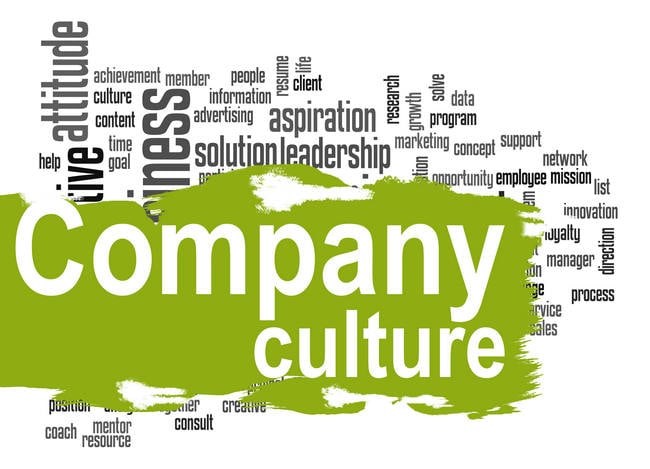
If the past couple of pandemic-influenced years has taught us anything, it's that what we thought we had control over is as laughable as trying to predict what's next! I've had the opportunity to navigate some interesting economic periods in my career as a financial executive. The "Great Recession" was once a period I hoped never to have to revisit, given the far-reaching impact it had and the catastrophic financial toll it took on the life savings of so many. The uncertainty that period exhibited was challenging to say the least.
However, if I learned anything from that experience, it is that we would invariably be faced with something equally as challenging, and we would likely be as unprepared for it as many were for the Recession.
I will not go so far as to suggest I knew a global pandemic was imminent. I will leave that kind of pontification to Bill Gates, Michael Osterholm, and others far more brilliant than me! But I do like to consider how the unknown might influence my company. I am, after all, a "recovering CFO!" Risk management is in my DNA.
For those of you that want an assist in looking at many of the common elements in this area, be sure to check out our free download The Finance and Accounting Risk Assessment. It will give you a real insight into areas you might want to consider additional resources to manage many of the risk factors your business faces.
As a leader of leaders, however, I spend time looking beyond the mechanical elements of risk. Beyond the tactical items I can buy insurance to mitigate or implement internal controls to reduce exposure to threats known and unknown. When I do, I return to a quote often shared that is one of my all-time favorites:
Culture eats strategy for breakfast…" – Peter Drucker
I have always interpreted this quote from Drucker to mean, "While you shouldn't ignore strategy, strong company culture is a more certain and resilient path to firmwide success." It makes a great deal of sense to me too. Culture informs decision-making and motivates your team. While strategy drives execution, without buy-in to your culture, you may end up with no one left to execute on your strategy.
As a result, I spend time considering our firm's culture, hoping to influence and shape it into something appealing to those who interact with us. And resilient enough to stand up to any number of challenges we are likely to face as an organization. And more recently, in the face of an incredible period of uncertainty, the Global Pandemic, I spent time wondering how our efforts ensured success. Will our culture prove to be ready for whatever the next period of uncertainty might bring?
To that, I've discovered a few elements that stand out to me surrounding culture and how to influence it.
-
Spend time thinking about your culture.
What is it? Can you define it? Is it something you are working to influence? Or is it merely a byproduct of what your company does on a daily basis? I will be the first to admit much of my career, it was the latter. I worked hard. I tried to do the right thing and hoped that would manifest as a culture others aspire to. But (and this is important), I wasn't considering what my team was embracing as it relates to culture. The rare individual has nothing to learn from those around him. I try to pay attention to the great minds I work with every day.
-
Focus on how your culture is communicated.
I have a good idea of our culture and how it should manifest. But have I done enough to share what that is? As an example, our firm operates on what we refer to as "Core Values." One of which is "Doing the right thing, for the right reason, at the right time." Sounds great, right? But what does it mean in the context of our culture?
For us, it manifests when our clients struggle. Our team then runs towards that struggle to help. The pandemic tested us in entirely new ways as new government programs were launched in record time with very little guidance and plenty of uncertainty about how they would work. There are countless examples where our team led the way to support clients with those programs. Those examples are validation that, at least in some instances, the culture we are striving for is manifesting.
-
Culture is an Art, Not a Science.
As an accounting and finance organization, we like rules and regulations. Rarely is a CFO without a control point for every circumstance! That said, acting in accordance with the culture you are trying to build requires a framework for thinking, with the ability to adapt to suit different circumstances. Not altogether different than guidelines for any number of business functions. But unique in that decision-making around cultural norms is often about doing the right thing. But, by who's standard? That is where the act becomes relevant. Much of my coaching focuses on intent. Did my partner or team member try to do the right thing, even if it differs from the decision I might have made? If the answer is yes, I am on the right track with cultural guidance. -
Culture is not Mission or Vision.
This one gets a little tricky. In my view, they are somewhat related. But Mission and Vision are substantially more tactical, tied to the activities your company is pursuing. Whereas culture surrounds mission and vision, influencing what happens when tactics cannot fill the void. For example, our mission is to be the best outsourced financial and accounting resource to small to mid-market companies in the markets we serve. But what happens when faced with a situation in which a company operating illegally asks for assistance? We are still the best, but our culture dictates that we will pass on that opportunity because it is not a good match for who we want to be.
I am generally pleased with how CFO Selections performed during our recent period of uncertainty, the global pandemic. We were fortunate our service offering was one our current clients found invaluable. And a resource clients sought to help them navigate that period. But the spirit in which our team responded to those requests was genuinely remarkable. They worked their tails off chasing the PPP funding program's moving target and offered countless hours of pro bono work to struggling clients when needed. This was a commitment the CFO Selections team made on their own.
I admit that it has come with some cost to both the team and the firm. The social distancing took a human toll on many, and we have navigated a wave of retirements in the past year as many have decided they have other priorities. Most have done so in the right way, completing client engagements before pursuing their retirement bliss. But they are incredibly capable folks, and we will miss their contributions immensely.
The question for me then becomes, what, if anything, can I be doing to continue to bolster our culture and prepare us for whatever the next challenging time might be? Without question, recruiting talent that aligns with the lifestyle factors we prioritize is vital. So is evolving the definition of what is essential to the team to continue to be willing to focus their attention outwardly when needed. I will continue to strengthen our firm's culture because it is the key to our resiliency in uncertain times as they will certainly come again.
About the Author
 Kevin Briscoe is the Managing Partner for CFO Selections. He is responsible for establishing and implementing goals and strategies for the firm. His professional career spans nearly 30 years in finance, accounting, and operations in publicly traded corporate and small, closely held settings.
Kevin Briscoe is the Managing Partner for CFO Selections. He is responsible for establishing and implementing goals and strategies for the firm. His professional career spans nearly 30 years in finance, accounting, and operations in publicly traded corporate and small, closely held settings.
Kevin excels in financial analyses and accounting operations, implementing internal controls, and creating and implementing organizational systems. He has held ownership and management positions, demonstrating an outstanding ability to provide effective leadership in increasing profitable growth throughout his career.





